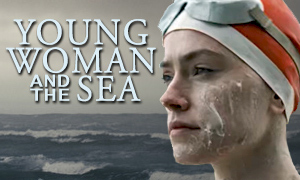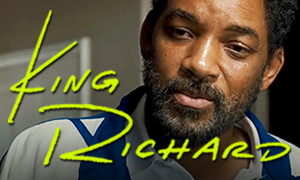The Walk: History vs. Hollywood
| REEL FACE: | REAL FACE: |
Joseph Gordon-Levitt
Born: February 17, 1981 Birthplace: Los Angeles, California, USA | Philippe Petit
Born: August 13, 1949 Birthplace: Nemours, Seine-et-Marne, France |
Charlotte Le Bon
Born: September 4, 1986 Birthplace: Montréal, Québec, Canada | Annie Allix
Birthplace: France |
Ben Kingsley
Born: December 31, 1943 Birthplace: Scarborough, Yorkshire, England, UK | Rudy Omankowsky, Jr. (aka Papa Rudy)
Born: 1937 Birthplace: Czechoslovakia |
Clément Sibony
Born: November 30, 1976 Birthplace: Paris, France | Jean-Louis Blondeau
Birthplace: France |
César Domboy
Born: March 10, 1990 Birthplace: France | Jean-François Heckel (aka Jeff)
Birthplace: France |
Steve Valentine
Born: October 26, 1966 Birthplace: Bishopbriggs, Scotland, UK | Barry Greenhouse
Birthplace: USA |
James Badge Dale
Born: May 1, 1978 Birthplace: New York City, New York, USA | Jean-Pierre Dousseau (aka JP)
Birthplace: France |
Ben Schwartz
Born: September 15, 1981 Birthplace: The Bronx, New York City, New York, USA | Albert
Birthplace: USA |
Benedict Samuel
Born: 1988 Birthplace: Australia | David (aka Donald)
Birthplace: USA |
Did Philippe Petit really get the idea to walk on a high-wire between the Twin Towers while reading a magazine at a dentist's office?
Yes. The real Philippe Petit was inspired to attempt the feat, which he nicknamed "the coup," after seeing an artist's rendition of the Twin Towers (pre-construction) in a newspaper at a dentist's office. The Walk movie true story reveals that he indeed tore out the page under the cover of a sneeze and hid it beneath his jacket as he walked out of the office, still battling a toothache that he'd have for another week. In real life, this happened in 1968 when Petit was 17, roughly six years prior to when he actually performed the stunt. The movie significantly condenses his preparation time. -Man on Wire Documentary
Did Philippe Petit really work as a street magician?
Yes. Like in The Walk movie, the high-wire artist also worked as a magician, performing on the streets of Paris. He began learning magic when he was six and fell in love with tightrope walking when he was a teenager, taking his first steps on a wire when he was sixteen.
Did Philippe Petit really fall into a shallow lake during his first high-wire performance?
No. There is no mention of this incident in the Man on Wire documentary or in Petit's autobiography, To Reach the Clouds. Petit himself has said that he has never fallen during a performance. However, he did fall once when he was touring with the Ringling Brothers' Greatest Show on Earth, but it was during rehearsals. He fell from 45 feet, broke several ribs and suffered other internal injuries. "It was practice," says Petit, "and practice is a very different field. Wire-walking in performance is one thing - I never fell, of course. If I had, I wouldn't be here talking about it." -TheGuardian.com
What other high-wire stunts had Philippe Petit performed before attempting his Twin Towers walk?
The Walk true story confirms that Petit had already attempted and completed an illegal high-wire walk at Paris's Notre Dame Cathedral in 1971 (shown in the movie) and another illegal walk at Sydney's Harbour Bridge in 1973. -Daily Mail Online
Did his girlfriend really support his dream of being "the most glorious high-wire walker in history?"
Yes, but she expressed more hesitation in real life than she does in the movie. Annie Allix, portrayed by Charlotte Le Bon in the movie, did help to provide Philippe with moral and logistical support, starting with his high-wire stunts at the Cathedral of Notre Dame in Paris and the Harbor Bridge in Sydney. However, when it came to crossing between the Twin Towers of the World Trade Center, Annie says she was a bit frightened. "It was inhuman to want to go and walk up there, 450 meters high," says Annie. "This was all becoming demonic. I just want to say: 'Stop!'" Annie didn't come over to New York until Petit's second attempt to execute his plan (the first attempt failed). -Man on Wire
Did Philippe Petit only make one trip to New York to prepare and execute his walk?
No, The Walk true story reveals that Petit actually made three trips to New York in order to study the Twin Towers and execute his plan. He and New York accomplice Jim Moore, a photographer, even rented a helicopter to take aerial photographs of the two buildings. -To Reach the Clouds
Did Petit really make a model of the Twin Towers?
Yes. Like in the movie, the real Philippe Petit created a scale model of the Twin Towers to help him prepare for the walk and design the necessary rigging.
Did Philippe Petit worry about wind affecting his Twin Towers walk?
Yes. Though it's not focused on heavily in the movie, part of Petit's preparation involved taking into account the swaying of the towers because of the wind, an aspect that was incorporated into their design. He also had to worry about the wind's direct effects on both himself and the wire. In The Walk movie, we see Philippe's girlfriend Annie (Charlotte Le Bon) shaking a low-hung wire that he's on in order to prepare him for the effects of the wind. The morning of his walk, August 7, 1974, was misty with a slight breeze.
Did they really wear disguises?
Yes, Using an ID that belonged to an American who worked in the building, Petit made fake IDs for himself and his accomplices. Like in the movie, they posed as contractors hired to install an electric fence on the rooftop. Previously, they had also posed as tourists, construction workers and white collar employees. As in the movie, Petit even pretended to be a journalist with the French architecture magazine Metropolis.
Did Petit really have an inside man who worked in the towers?
Yes. Barry Greenhouse, who is portrayed by Steven Valentine in the movie, was the Assistant Director of Research at the New York State Insurance Department on the 82nd floor of the World Trade Center's South Tower. Greenhouse indeed recognized Petit from having seen him street juggling in Paris and agreed to help him. "He sorta draws you into his world," says Greenhouse, "and I guess I was the kinda guy who was not averse to doing things that were slightly, ah, you know, not totally legal." -Man on Wire
Did Philippe Petit really step on a nail 3 weeks before the walk?
Yes. Philippe Petit stepped on a nail sticking out of a plank during one of his reconnaissance operations inside the Twin Towers. It went through the sole of his shoe and left him laid up in bed for three days. As in the movie, at first he thought his crutches would hinder him, but he quickly realized they were a blessing in disguise. Guards helped him and nobody asked him for an ID. -Man on Wire
Exactly how high were the Twin Towers of the World Trade Center?
The Twin Towers, which opened in 1973, were 110 stories and stood approximately 416 meters (1,365 feet). They were the tallest buildings in the world at the time. Philippe Petit's 450-pound, 200-foot galvanized steel wire-rope was strung across the 138-foot gap between the rooftops of the two towers at a height of roughly 411 meters (1,350 feet). By comparison, the Eiffel Tower stands 324 meters (1,063 feet).
How high were the actors when filming The Walk?
Though certain vertigo-inducing parts of the movie might look perilous, the actors were only ever about 12 feet off the ground. "We built a beautiful set of the top two stories," says Joseph Gordon-Levitt, "and then surrounded that with green [screen]." The rest of the Twin Towers was added digitally. -CNN
Gordon-Levitt had visited the original observatory in the summer of 2001, just months before the September 11 terrorist attacks. "It was touristy but I wanted to go do it. I remember it distinctly," he says. "It felt more like being in the sky than being on a tall building." To fully understand the distance Petit walked, Gordon-Levitt returned during the making of the movie and walked the distance between the two pools of the World Trade Center's memorial. -The Hollywood Reporter
Was Petit's plan really a success on his first attempt?
No. Petit's first attempt to execute "the coup" failed. It was then that he called his girlfriend Annie and asked her to come over to New York for support. The real Annie Allix says that trying to figure out what was going on in Petit's head while encouraging him at the same time was an exhausting job. -Man on Wire
Did Philippe suffer from anxiety before "the coup"?
Yes, like in The Walk movie, the true story reveals that Petit woke up in the middle of the night before the coup and began to nail shut the crate, imagining that he was nailing shut his coffin. -Man on Wire
Did a stroke of luck allow them to go all the way to the top floor?
No. A stroke of luck got them to the 104th floor, not all the way to 110 like in the movie. Originally, they had planned on taking most of the equipment to Barry Greenhouse's office on the 82nd floor, but the elevator operator didn't hear his boss's instructions clearly and allowed them to go to 104. -Man on Wire
Did Philippe and Jeff really have to sit on an I-beam to hide from a security guard?
Yes. They were suspended for approximately three hours on an I-beam over a seemingly bottomless shaft that had a drop of 400 meters (1,312 feet). Like in the movie, one of their accomplices, Donald, started to freak out and didn't want to hide under the tarp. He didn't want to get caught and Petit agreed that he should leave and head down the stairwell quickly. As Petit and Jean-François (aka Jeff) hid under the tarp, Petit used a paper clip to make a peephole in the tarp, which he widened with a pen (he only uses a pen in the movie).
Did they really get the wire across the towers using a bow and arrow?
Yes. Petit's childhood friend Jean-Louis Blondeau came up with the idea of using a bow and arrow. They started by sending across fishing line attached to an arrow. The fishing line was attached to larger ropes, eventually ending with the 450-pound, 200-foot steel cable that Petit would use for his walk. Like in the movie, they had brainstormed a number of ideas on how to get the wire across, including using a radio controlled airplane. -Man on Wire
Did Philippe really take off all his clothes to feel for the fishing line attached to the arrow?
Yes. A naked Philippe Petit climbed down toward the edge and eventually felt the fishing line on his thigh. Like in The Walk movie, the arrow was balancing very precariously on the edge of the building's corner. -Man on Wire
Did they really almost drop the cable?
Yes. The true story behind The Walk reveals that the rope and cable did drop several hundred feet. Philippe believes that he probably fed too much cable at one time, which caused it to drop quickly from its weight as they were unable to hold it. Like in The Walk, the real Philippe Petit tightened the U-clamp just in time. It took roughly half an hour for the guys on the other side to pull the cable up. -Man on Wire
Did Annie really wait through the night by herself?
No. The real Annie Allix had gone home. She found a taxi to take her to the World Trade Center in the early morning while the streets were still deserted. She and other members of the team gathered at around 6 a.m. with their eyes focused upward on the Twin Towers. -To Reach the Clouds
Did they really encounter a mysterious man in a suit during the morning of the walk?
Yes, and the real Philippe Petit did refer to the man they encountered on the roof as the "mysterious visitor." The Walk true story confirms that Petit did pick up a short metal pipe, uncertain what he was going to do with it. As in the movie, they never saw the man again. -To Reach the Clouds
Did Philippe Petit really drop the shirt to his costume?
Yes. "Suddenly we saw something, a shape, just for a second, falling down..." recalls the real Annie Allix. "There was a huge cry of relief... it was only a piece of clothing." -Man on Wire
Did Philippe really have to hurry onto the wire as he saw the elevator wheel turning?
Yes. "I know my fate has been written now," Philippe says of seeing the elevator wheel begin to move. "Time is no longer smiling at me." -Man on Wire
How long did Philippe Petit spend on the wire?
The man on the wire, Philippe Petit, spent approximately 45 minutes balancing himself 110 stories in the air, performing tricks and eluding police officers who waited at both ends of the cable to arrest him. He made a total of eight passes. -Daily Mail Online
Did Philippe Petit really lie down on the wire, and also perform other tricks?
Yes. Much like what is seen in the movie, during the 45 minutes he spent on the wire, Philippe Petite walked, danced, knelt down and saluted, and lied down on the wire.
Did Philippe Petit's foot really bleed as he walked on the wire?
No. In both the Man on Wire documentary and Petit's autobiography, there is no evidence that Petit's right foot was bleeding as he walked on the high-wire between the Twin Towers. The movie implies that his puncture wound from stepping on the nail several weeks earlier had opened up, but this is not true.
Did a large bird really convince Petit to get off the wire?
Not exactly. He does write of the whitish bird in his autobiography, confused as to why it disappeared so fast, wondering if the clouds were angry or if it was going to come back with a flock to chase him away. Like in the movie, the police threatened to forcefully remove Petit from the wire using a helicopter to snatch him. However, the main reason he got off the wire was that he felt the humidity in the air and the wind growing. He realized the conditions were becoming less safe. -Man on Wire
Were his last 3 steps before stepping off the wire really as shaky as in the movie?
No. There is no mention of Petit's final steps being unsteady in the Man on Wire documentary or in his autobiography. In the latter, he says that he bid farewell to the New York sky by running on the wire, causing it to shake with enjoyment.
Was Philippe Petit really arrested?
Yes. After finishing his high-wire performance between the Twin Towers, Philippe Petit was arrested and jailed pending a psychological evaluation. The Walk movie true story confirms that New York City eventually dropped the criminal trespassing and disorderly conduct charges against Petit in exchange for him agreeing to perform a high-wire walk several feet above Turtle Pond (formerly Belvedere Lake) in Central Park for children. -Daily Mail Online
Did Petit's girlfriend Annie really go back to France after his Twin Towers walk?
Yes. "We became inseparable," says the real Annie Allix of getting to know Petit. "In fact, my life was completely consumed by his. And he never thought to ask me whether I had my own destiny to follow. It was quite clear I had to follow his." The movie doesn't show the immediate effect the sudden fame had on Petit. Before he reunited with his team, including Annie, he had sex with a random admirer in the crowd who wanted to "welcome" him to New York.
In real life, Petit wasn't as eager to take Annie to New York with him as he is in the movie, stating in the Man on Wire documentary, "Annie has been angling for an invitation to New York, using tenderness, blackmail, threats, insults and tears." The real Annie actually didn't come to New York until later, after Petit's first attempt failed and he wanted her there for support.
Philippe Petit pictured in February 2009.Did Philippe Petit really receive a lifetime pass to the observation deck of the Twin Towers?
Philippe Petit pictured in February 2009.
Yes. In addition to receiving a lifetime pass to the World Trade Center observatory, he also autographed a steel beam not far from where he began his high-wire walk. Both moments are highlighted in the movie.
Did actor Joseph Gordon-Levitt learn to walk on a high-wire for the movie?
Yes. Joseph Gordon-Levitt trained directly with his character's real-life counterpart, Philippe Petit. They engaged in an elaborate 8-day workshop. "By the end of the eight days, I was able to walk on the wire by myself, and continued to practice while we shot," says Gordon-Levitt. "It's actually very fun, if painful." -The Hollywood Reporter
Philippe Petit Interviews & Related Videos
Expand your knowledge of The Walk true story by watching the videos below, including a Philippe Petit speech during which he talks about discovering magic and high-wire walking.
WATCH The Walk Teaser TrailerJoseph Gordon-Levitt portrays Philippe
Petit in a Robert Zemeckis film. The movie
chronicles Petit's illegal 1974 wire walk
in the immense void between the World
Trade Center towers. He had to overcome
close calls and obstacles to beat the
system and execute his high-risk plan. |
WATCH The Walk TrailerExperience the fact-based story of French
high-wire artist Philippe Petit (Joseph
Gordon-Levitt), who attempted to cross
between the Twin Towers of the World Trade
Center in 1974. Directed by Robert
Zemeckis. |
Link-to-Learn More:
- Man on Wire Documentary Website at Magnolia Pictures
- The Walk Official Movie Website from Sony Pictures







